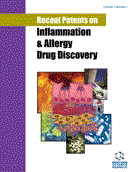Abstract
TNFa plays a pivotal role not only in the inflammatory process but also in the normal response against pathogens and therefore, interfering with this cytokine may increase the risk of infection. TNFα antagonists are commonly used in daily clinical practice for the treatment of inflammatory rheumatic diseases including rheumatoid arthritis, ankylosing spondylitis, psoriatic arthritis and juvenile idiopathic arthritis since the beginning of 2000. The spectrum of pathogens giving infectious disease in patients under anti-TNFα therapies ranges from common bacteria to more opportunistic organisms such as Mycobacterium tuberculosis. The infections which were described with TNFα inhibitors may have a benign course or may be a serious, life threatening disease, and may be localized or disseminated. These TNFα inhibitors related infections were described in the randomized clinical trials, and were then declared to postmarketing surveillance systems and special registries. Tuberculosis (TB) is the most frequent opportunistic infection which has been reported with TNFα antagonists and the highest risk appears to be associated with infliximab, and at a lesser extent with etanercept. Currently available data and recent patents on the risk of TB with adalimumab are not sufficient to conclude, but TB cases were also reported with this agent. The description of TB infections with TNFα inhibitors led to the establishment of new guidelines for screening patients at high risk of developing TB. These data highlight the importance of post-marketing surveillance and special registries for accurately evaluating the safety profile and particularly the infectious risk of this very effective class of drug in inflammatory rheumatic diseases.
Keywords: TNFα antagonists, Tuberculosis, Opportunistic infections, Serious bacterial infections
 18
18


















